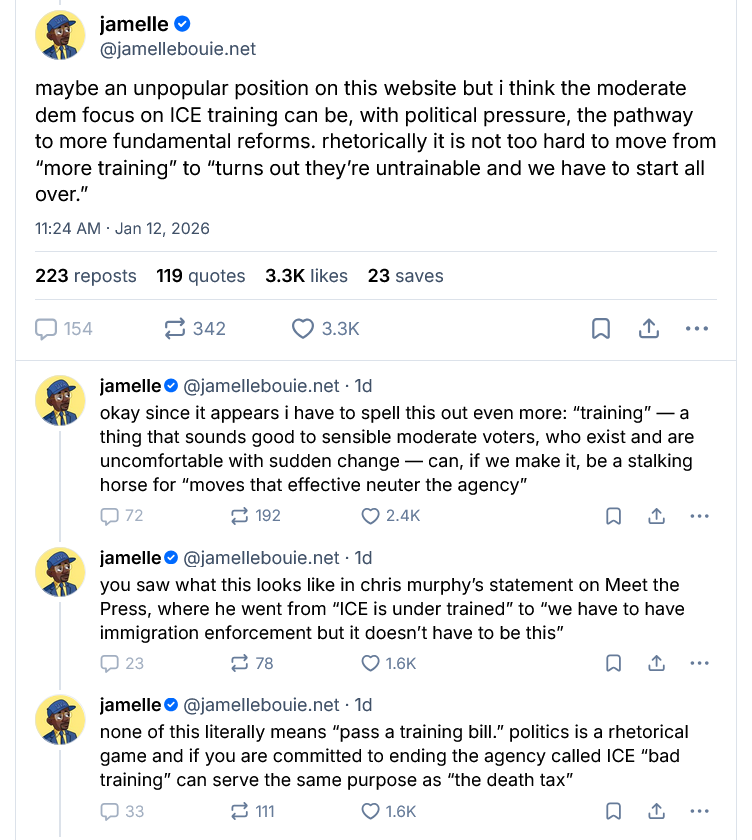A few thoughts about "crime." The concept of “crime” is created and manipulated by people who have power. Throughout U.S. history, powerful people have defined “crime” in ways that benefit wealthy people and white people. (1)
For example, cocaine, marijuana, and opium were each made illegal through specific political campaigns in order to give police more discretion to target specific racial minorities. (2)
It is illegal for poor people to wager over dice in the streets but legal for wealthy people to wager on the global price of wheat, the value of international currencies, or mortgage securities. (3)
And even within categories of acts that are classified as “crimes,” powerful people decide where to look for those acts, when to look for them, and which ones to ignore and which to document. "Law enforcement" only enforces *some* laws against *some* people. (4)
Students at universities frequently violate underage drinking, drug, and assault laws without punishment while Black people who live down the street are surveilled, searched, arrested, beaten, jailed, and rendered homeless, jobless, and traumatized for similar behavior. (5)
A schoolyard fight at a wealthy private school may mean a call to parents but the same fight at a school filled with poor children is recorded as a “crime” and prosecuted, ending with a child kept in a cage away from her family. The entire system is filled with such examples. (6)
• • •
Missing some Tweet in this thread? You can try to
force a refresh







